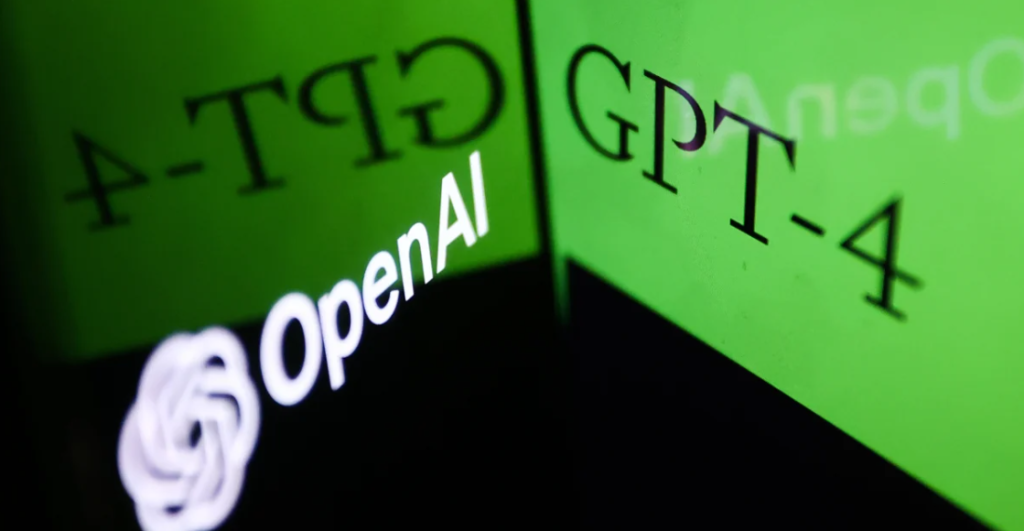
OpenAI’s latest version of its language model, ChatGPT, called GPT-4, is a breakthrough in artificial intelligence (AI) technology. This model is a significant advancement compared to its predecessor, GPT-3.5, and has revolutionized how we communicate with machines. In this article, we will discuss what GPT-4 is, its enhancements, and the differences between GPT-3.5 and GPT-4.
Must Read: DALL·E 2: An Inside Look at the Latest Usage Statistics
What Is GPT-4?
The new and highly anticipated version of OpenAI’s language model, ChatGPT, has finally arrived as GPT-4. This latest version boasts a significant advancement in technology, being ten times more advanced than its previous version, GPT-3.5.
GPT-4’s advanced technology allows it to understand context and nuances in language better than ever before. This results in more accurate and coherent responses to queries, setting a new standard for natural language processing.
Additionally, GPT-4 has a maximum token limit of 32,000, which is a vast improvement from GPT-3.5’s limit of 4,000. This token limit is equivalent to 25,000 words, allowing GPT-4 to generate longer and more detailed responses.
OpenAI’s internal evaluations also demonstrate GPT-4’s superiority to its predecessor. GPT-4 is 82% less likely to provide responses containing disallowed content, making it a more reliable and trustworthy tool. Furthermore, GPT-4 has a 40% higher chance of producing factual responses, making it an invaluable resource for those seeking accurate information.
GPT-3.5 Vs. GPT-4 – What’s Different?
GPT-4 offers several improvements over its predecessor, including linguistic finesse, information synthesis, creativity and coherence, and complex problem-solving.
1. Linguistic Finesse
GPT-3.5 is quite capable of generating human-like text, but GPT-4 has an even greater ability to understand and generate different dialects and respond to emotions expressed in the text. The new technology, GPT-4, has the ability to detect and react to a user’s emotions such as sadness or frustration, in a way that feels more empathetic and real.
This creates a more personal and genuine interaction between the user and the technology. One of the most impressive aspects of GPT-4 is its ability to work with dialects. Dialects are versions of a language that are specific to certain regions or cultures. They can pose a significant challenge for language models since they often have distinct vocabulary, grammar, and pronunciation that differ from the standard language.
Despite the challenges faced by previous models, GPT-4 has been developed with a focus on conquering them. As a result, it can now generate and understand text in multiple dialects with a high degree of accuracy.
2. Information Synthesis
GPT-4 has the ability to provide answers to complicated questions by combining information from various sources, something that GPT-3.5 may find challenging. A good example is when asked about the relationship between the reduction of bee populations and its effect on global agriculture.
GPT-4 can offer a more detailed and nuanced response, drawing from several studies and sources. Moreover, unlike its forerunner, GPT-4 has been fitted with an innovative feature that enables it to reference its sources correctly as it generates text.
This means that when the model creates content, it provides citations for the sources it has employed, which makes it more convenient for readers to verify the reliability of the information presented.
3. Creativity and Coherence
Although GPT-3.5 is capable of generating imaginative content, GPT-4 takes it a notch higher by producing stories, poems, or essays that boast superior coherence and creativity. As an illustration, GPT-4 has the ability to generate a brief story that boasts a captivating storyline and well-crafted characters. This is a significant advancement in natural language generation and has the potential to transform industries such as content creation, marketing, and entertainment.
4. Complex Problem-Solving
GPT-4 has been designed to solve complex problems, making it a valuable tool in fields such as science, engineering, and finance. The model can analyze vast amounts of data and provide insights that can be used to solve complex problems.
For example, GPT-4 can analyze financial data to detect patterns and trends, providing valuable insights to investors and financial analysts. Another significant improvement in GPT-4 is its ability to learn and adapt from the context of the conversation.
The model can understand the flow of the conversation and respond accordingly. This means that GPT-4 can now hold more natural and meaningful conversations, making it more useful for applications such as customer service and chatbots.
GPT-4’s Impact on Various Industries

source: https://www.forbes.com/sites/bernardmarr/2023/02/24/gpt-4-is-coming–what-we-know-so-far/
GPT-4’s enhanced abilities in natural language processing and generation have the potential to transform various industries. Here are a few examples:
Customer Service
GPT-4’s ability to understand context and emotions can enhance customer service interactions. It can provide personalized responses to customer inquiries, address complaints more effectively, and even detect and prevent fraudulent behavior.
Education
GPT-4’s ability to synthesize information and generate coherent responses can help students and educators alike. It can assist in research projects, generate study materials, and provide personalized feedback on student work.
Healthcare
GPT-4’s natural language processing capabilities can aid in medical diagnosis and treatment. It can analyze patient data and generate recommendations based on symptoms, medical history, and other factors.
Finance
GPT-4’s ability to solve complex problems makes it a valuable tool for financial analysis and decision-making. It can analyze vast amounts of financial data and provide recommendations on investment strategies, risk management, and other financial operations.
Ethical Implications of GPT-4
As with any advanced technology, GPT-4 raises ethical concerns that need to be addressed. Here are a few potential issues:
Bias
Language models like GPT-4 can potentially reinforce existing biases in society. For example, if the training data used to develop GPT-4 is biased, it could lead to biased responses and perpetuate harmful stereotypes.
Misinformation
GPT-4’s ability to generate coherent and convincing text could be misused to spread false information. This could have serious implications for public health, political stability, and other areas.
Job Displacement
GPT-4’s ability to generate high-quality content could potentially replace human content creators, leading to job displacement in various industries.
FAQs
GPT-4 is the latest version of OpenAI’s language model, ChatGPT. It is ten times more advanced than its predecessor, GPT-3.5, and has enhanced abilities in natural language processing and generation.
GPT-4 offers several improvements over GPT-3.5, including linguistic finesse, information synthesis, creativity and coherence, and complex problem-solving. It also has a maximum token limit of 32,000, compared to GPT-3.5’s 4,000 tokens.
GPT-4’s enhanced abilities in natural language processing and generation have the potential to transform various industries, including content creation, customer service, education, healthcare, finance, and more.
GPT-4 raises ethical concerns around bias, misinformation, and job displacement. These issues need to be addressed to ensure the responsible use of the technology.
Also Read: ChatGPT User Statistics: A Look at How the AI is Changing the Game
Conclusion
GPT-4 is a significant advancement in natural language processing and generation. It offers several improvements over its predecessor, GPT-3.5, including linguistic finesse, information synthesis, creativity and coherence, and complex problem-solving.
Its potential impact on various industries is vast, and it could transform content creation, customer service, education, healthcare, finance, and more. However, GPT-4 also raises ethical concerns that need to be addressed to ensure its responsible use in society.
